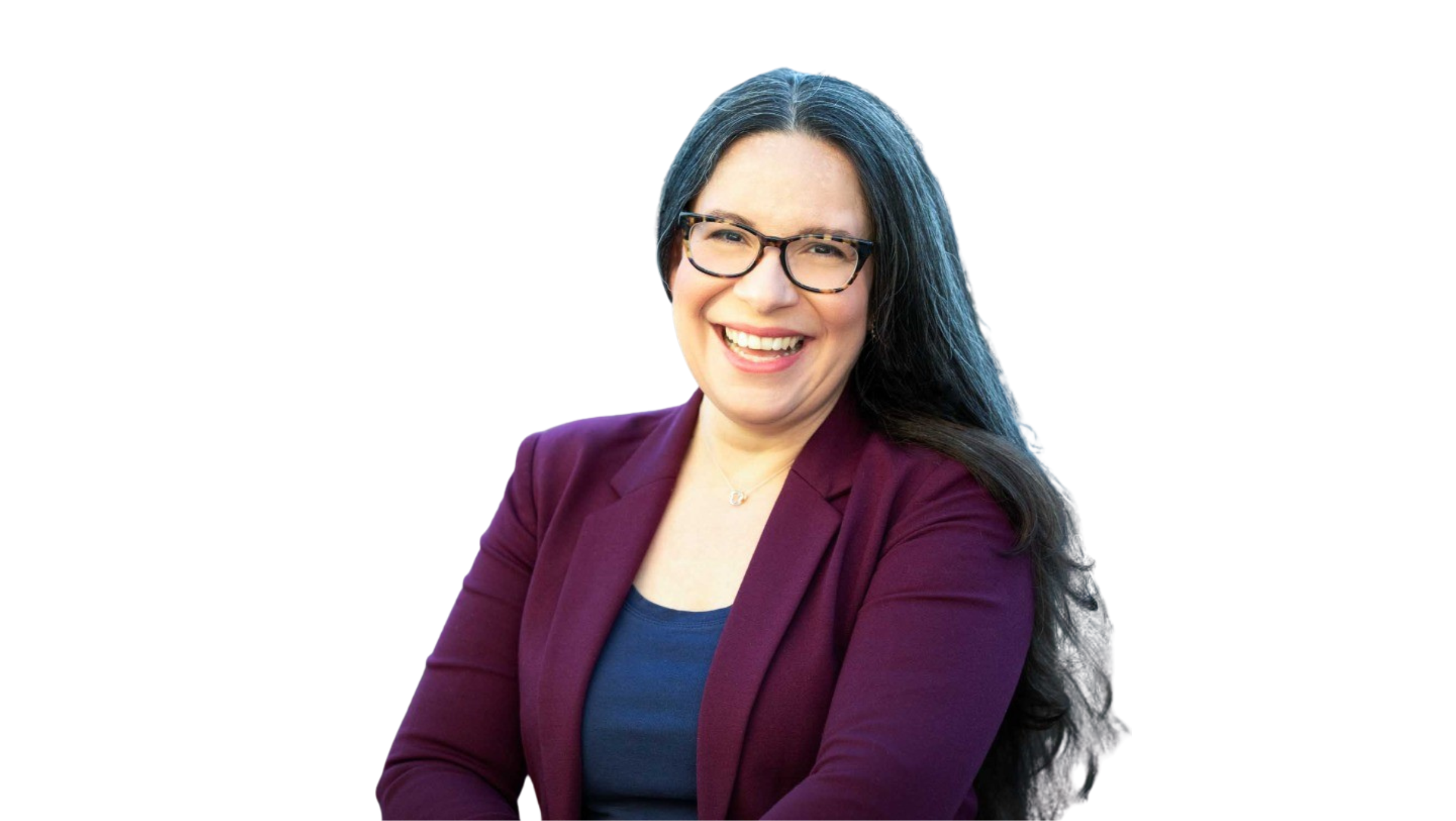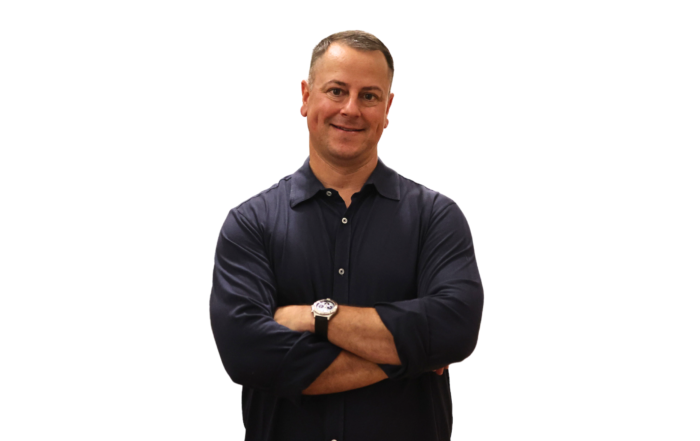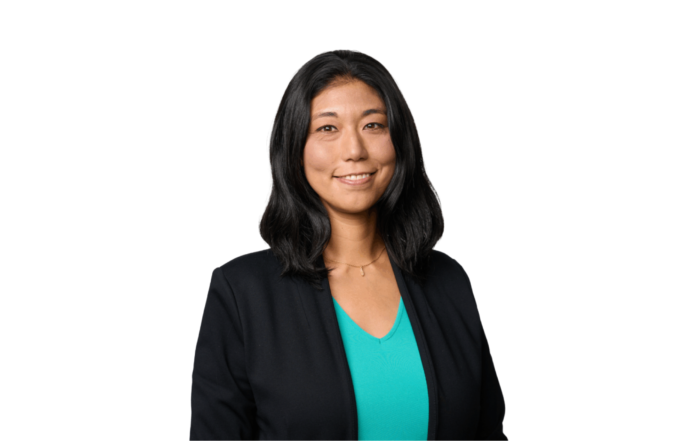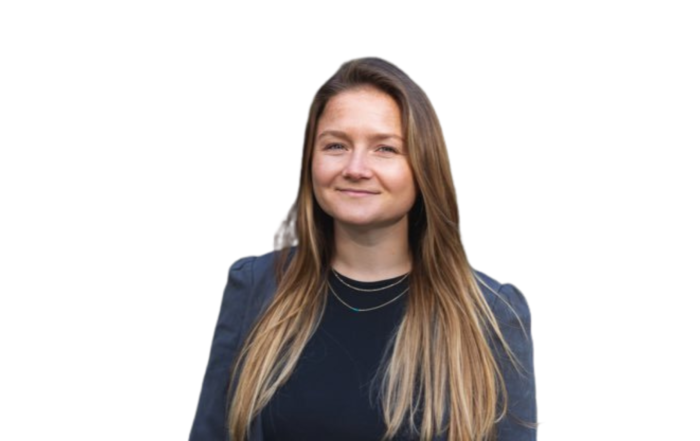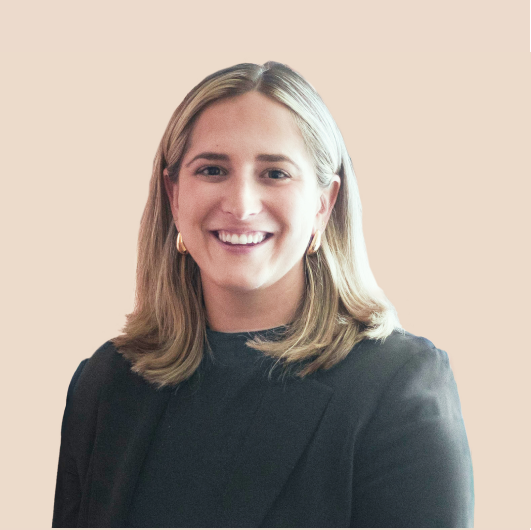
Morgan Caplan
Senior Communications Manager
It wasn’t politics that brought her to climate, it was climate that pushed her into politics, transforming a scientist into a strategist. Today we’re featuring Angela Barranco, Executive Director of Climate Group North America, where she oversees the fast-approaching Climate Week NYC, the world’s largest private climate gathering, bringing together unexpected allies and bold ideas to move the climate agenda forward.
(Do you know someone who should be featured in a future edition of the Echo Chamber newsletter? Reply to this email to let us know.)
About Angela Barranco: Angela brings over two decades of political and policy management experience, including several years in problem-solving, campaign-driven, solutions-focused work on climate, clean energy, clean cars and protecting natural resources, most recently as Undersecretary of the California Natural Resources Agency. Prior to CNRA, Angela served as Chief Executive for River LA, Deputy Chief of Staff at the US Department of Housing and Urban Development (HUD) and led climate and environment outreach for the Obama White House as Associate Director for Public Engagement of the White House Council of Environmental Quality (CEQ).
Angela’s extensive climate, policy and strategic management skills help Climate Group to strengthen partnerships and networks across sectors to drive impact at this urgent moment. Her strong leadership experience helps focus Climate Group North America on accountability and comprehensive emissions reductions that create a more prosperous future for all. She holds a Bachelor of Arts from Columbia University in Environmental & Conservation Biology and is based out of Washington, D.C. with her husband and two children.
We spoke with Angela over Zoom recently:
Tell us a little bit about how you got into the climate world and eventually became executive director of Climate Group North America?
It’s kind of a funny story I always tell people, especially folks who know me from D.C., like they know me as a political person. I worked on campaigns for many years, but actually I was trained as a conservation biologist. And I joke that it was actually climate that radicalized me as a political person, not the other way around. And so I actually started as a scientist, learning about conservation and all the incredible adversity in the world, and read this really interesting but very challenging book called The Skeptical Environmentalist, which was an early climate denial book funded by outside interests. I was just really shocked, you know, as a scientist, but this doesn’t make any sense.
So I ended up doing a fellowship on the Hill. I was like, why not go and share the science and see if folks are really engaged? And then I came to D.C. for the first time and realized this is not how it works at all.
I kind of fell in love at the same time with this understanding of how to make change. I worked on the Hill, I worked in campaigns and politics for many years, understanding that side of it and how you really persuade people, not necessarily on climate, but just in general. What do people care about? Why are they making the decisions? I was truly a scientist in my early years in my approach on how to do it. About halfway through my career, I thought I wanted to go back into climate.
After the Obama campaign, I had the opportunity to join the White House where I led climate, energy, and environment engagement.
I got myself back on that track with the political skills I developed over that decade of political work, which have been really important and increasingly important to the climate world every day. So that’s how I ended up here.
Let’s talk about Climate Week. What’s going to be different at this year’s Climate Week? What are you most excited about? How has the landscape changed over the years?
This will be my fourth Climate Week, I believe. I’ve been in the role a little more than three years. What’s been exciting for me is to see that, with a very different political and social landscape than a year ago, the interest and engagement around Climate Week is unabated. We’re on track to have nearly the same number of events as last year, which is incredible.
It shows the breadth of interest across sectors and communities in addressing climate change and being part of the solution. Especially with Climate Week as the largest private gathering in the world on climate, last year we had over 900 events across the city plus many virtual events. I don’t even know how to calculate the number of people who participated, but what we get is insight into all the different industrial sectors, community groups, and government levels, from global to local city councils. What is really beautiful to see is that engagement across the board.
The biggest surprise is that this year’s Climate Week is going to look a lot like last year’s, despite the unknowns earlier this year. Folks are really excited to get together, strategize, and think about how to move progress forward in a completely different landscape.
Looking at D.C., if you could tell policymakers one thing right now, what would it be?
I would say policymakers elsewhere might be a higher priority than DC policymakers. Now is the moment to keep going. We are seeing incredible leadership happening at the state and local level. I would ask, how can we support you? How do we keep you going?
One of the things Climate Group North America has been thinking a lot about is policy frameworks, finance frameworks, and implementation frameworks in this post-IRA world. With the lack of federal support, the best thing we can do is support each other and collaborate. What’s been really cool to see is broader coalitions and collaborations of unusual allies, or even former rivals, working together to get things done.
What’s the biggest risk you’ve ever taken?
I would say, more recently, in the last six months, especially in DC, there has been rapid change and aggressive movement against the status quo. There is a moment of mourning and shock. Very early in April, we hosted one of the first big gatherings of climate leaders in DC. It was a big risk. Would anyone show up? Would people be upset that we were doing this blocks away from the White House?
It really paid off because in a moment of crisis, structure helps move things forward. By being bold and taking a chance, we were able to bring together leaders from across the US who wanted to understand the moment better and had ideas to move forward. That has paid dividends all the way through this week, where we’re hosting the American Innovation and Abundance Day as part of Climate Week to continue the momentum. It creates stickiness in the face of what can feel daunting and immobilizing. It wasn’t my risk alone; my team is wonderful, and together with partners, we made it work. This snowballed into creative new ideas, moving forward, and getting them funded.
What is something that would surprise people about you?
Maybe that I’m a scientist. Especially in DC, people are often surprised. I’m not a political insider; I’m a little science unicorn living among my more political friends. Part of this is drawing inspiration from what we’ve done and seen. I’m proud of my science background and how it helps me every day, but it’s not something I put forward all the time. I have many other hats I wear on a given day, making smart decisions for us.
Know someone who should be featured? Email us: info@echocomms.com.
Sign up for our newsletter
Receive updates on our work, industry news, and more.
